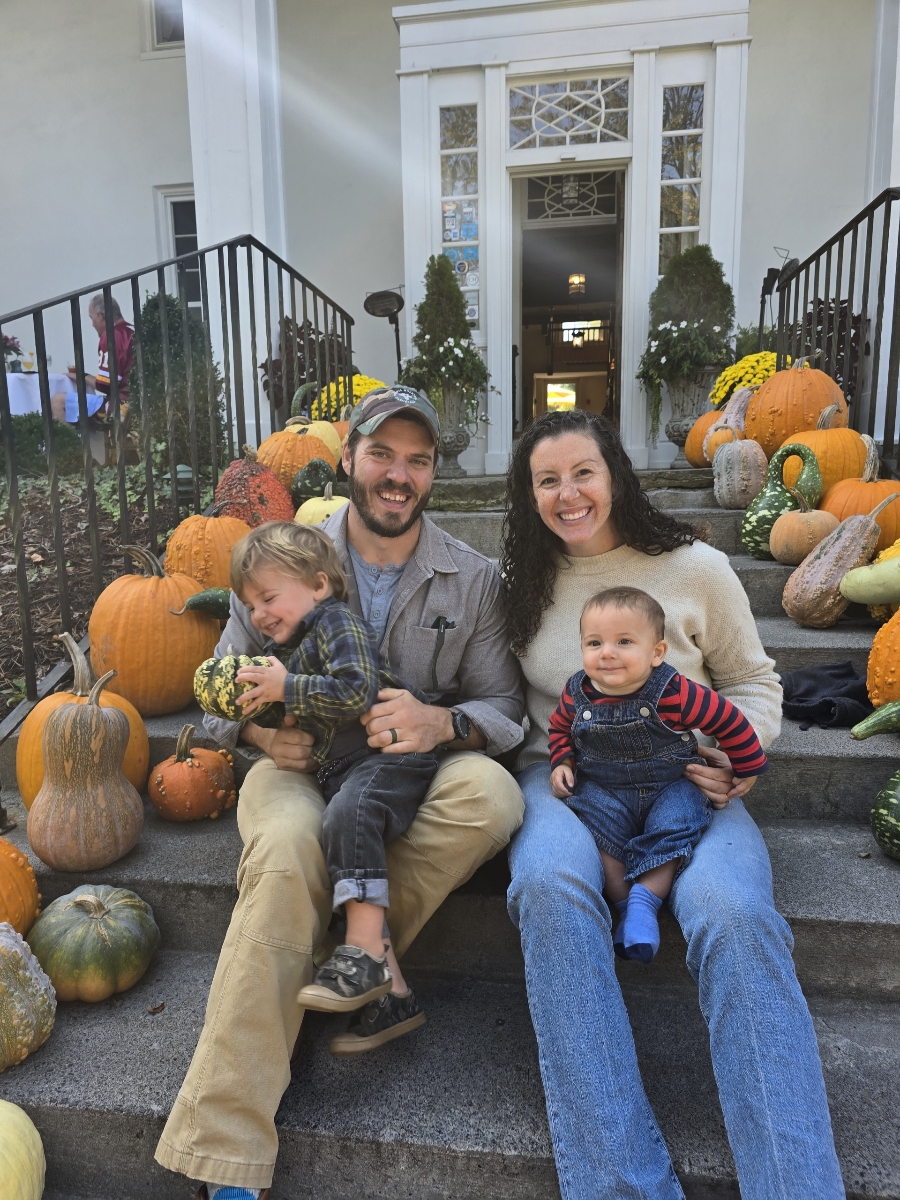Blogs
Blogs

The Essential Guide to Sustainable Practices of Local Farms
Sustainable Practices of Local Farms: How Organic and Regenerative Methods Benefit Communities and the Environment
As concerns over climate change, food security, and health continue to rise, more people are looking to local farms as a source of hope. Local farmers are leading the way in adopting sustainable methods that go beyond just growing food—they regenerate soil, build stronger communities, and create healthier ecosystems. This blog explores how organic and regenerative practices are reshaping farming and benefiting people, the planet, and local economies.
What Are the Key Organic Farming Methods Used by Local Farms?
Organic farming focuses on natural inputs and processes that maintain ecological balance. Key methods include:
Composting and natural fertilization
Crop rotation and polyculture
Mechanical and hand weeding instead of chemical herbicides
Avoiding synthetic pesticides and GMOs
How Do Organic Farming Techniques Improve Soil Health?
Healthy soil is the foundation of sustainable farming. Organic methods:
Increase organic matter
Improve soil structure and moisture retention
Encourage beneficial microbes and fungi
Reduce erosion and compaction
Which Natural Pest Control Methods Are Common in Organic Farming?
Local organic farms often rely on:
Companion planting
Biological controls (like ladybugs and nematodes)
Physical barriers and traps
Neem oil and other plant-based sprays
What Role Do Crop Rotation and Cover Crops Play in Organic Farms?
Crop rotation prevents nutrient depletion and pest cycles, while cover crops:
Protect soil from erosion
Fix nitrogen in the soil
Suppress weeds
Provide habitat for pollinators and beneficial insects
How Does Community-Supported Agriculture (CSA) Promote Sustainable Local Farming?
CSAs create a direct partnership between consumers and farmers. Members pay upfront for a share of the farm's produce, providing farms with steady income and reducing reliance on long-haul distribution.
What Are the Benefits of Joining a CSA Program?
Access to ultra-fresh, seasonal produce
Support for local food systems
Reduced packaging and transport emissions
A deeper connection to the source of your food
How Do CSAs Support Local Farmers and Reduce Food Miles?
By shortening the supply chain, CSAs:
Lower greenhouse gas emissions
Keep profits local
Reduce food spoilage and waste during transit
What Are Typical CSA Membership Models and Produce Offerings?
Weekly or biweekly boxes
Full and half shares
Optional add-ons: eggs, dairy, meat, flowers
Seasonal selections that change throughout the year
What Are Regenerative Agriculture Practices and Their Impact on Local Farms?
Regenerative agriculture goes beyond sustainability. It aims to restore ecosystems, build resilience, and reverse environmental degradation.
How Does Regenerative Agriculture Restore Soil and Biodiversity?
These practices increase soil carbon, improve water retention, and foster a biodiverse microbiome that supports plant health. More biodiversity means stronger ecosystems that are less vulnerable to pests and climate extremes.
Which Techniques Define Regenerative Farming on Local Farms?
Managed rotational grazing
No-till or low-till cultivation
Agroforestry and perennial planting
Integrated animal-plant systems
How Do Regenerative Practices Enhance Carbon Sequestration?
Healthy, undisturbed soil captures and stores atmospheric carbon. Cover crops, composting, and pasture rotation all boost the soil's capacity to act as a carbon sink.
What Eco-Friendly Farming Techniques Are Adopted by Local Farms?
Beyond organic and regenerative approaches, many local farms:
Use biodiesel or electric equipment
Grow native and climate-adapted crops
Reduce plastic use and packaging
How Is Water Conservation Implemented in Sustainable Farming?
Drip irrigation systems
Rainwater harvesting
Mulching to retain soil moisture
Timing irrigation for maximum efficiency
What Renewable Energy Sources Do Local Farms Use?
Solar panels for water pumps, refrigeration, and lighting
Wind turbines for supplemental power
Geothermal heating for greenhouses
How Do Local Farms Minimize Waste and Promote Recycling?
Composting food scraps and plant waste
Reusing materials for infrastructure
Offering returnable or reusable packaging to CSA members
Why Choose Local Farm Produce for Health and Environmental Benefits?
Higher nutritional content due to freshness and soil quality
Fewer preservatives and processing
Reduced carbon footprint from transport
Greater accountability in growing practices
How Does Freshness Affect Nutritional Value in Local Produce?
Produce begins to lose nutrients soon after harvest. Local farms can get food to you within a day or two, maximizing vitamin and mineral content.
What Transparency Practices Do Local Farms Use to Build Trust?
Open farm days and tours
Newsletters and social media updates
Detailed labeling of practices and origins
Direct communication with customers
How Does Supporting Local Farms Strengthen Community Economies?
Keeps money within the region
Creates local jobs
Encourages entrepreneurship and innovation
Builds food resilience and self-sufficiency
How Can Consumers Identify Truly Sustainable Local Farms?
Look for farms that:
Share their practices openly
Invite community involvement
Engage in conservation programs
Show commitment beyond basic compliance
What Certifications and Labels Indicate Sustainable Farming?
USDA Organic
Certified Naturally Grown
Regenerative Organic Certification
Real Organic Project
Animal Welfare Approved
How to Evaluate a Farm’s Commitment to Environmental Practices?
Ask about crop rotation, pest management, and energy use
Visit the farm or attend tours
Read reviews or talk to current CSA members
What Role Do Farm Tours and Workshops Play in Consumer Education?
They offer:
Hands-on experience with growing and harvesting
Insight into daily challenges and practices
A chance to meet your farmers and ask questions
Education for kids and families on sustainable food systems
What Are the Challenges and Future Trends in Sustainable Local Farming?
Despite their benefits, sustainable farms face:
Labor shortages
Climate change impacts
Limited access to infrastructure and funding
Consumer awareness gaps
How Are Innovations Shaping the Future of Sustainable Farming?
Controlled environment agriculture (e.g., hoop houses, aquaponics)
Soil health monitoring via AI and sensors
Mobile apps for CSA management and produce tracking
Solar-powered cold storage and processing facilities
How Can Consumers and Communities Support Sustainable Local Agriculture?
Shop at farmers' markets and farm stands
Join or gift CSA memberships
Volunteer on local farms or donate to food sovereignty initiatives
Advocate for local food policy and land conservation
Final Thoughts
Supporting local farms that embrace organic and regenerative practices is more than a lifestyle choice—it's an investment in the future. By prioritizing healthy soil, clean water, biodiversity, and strong community ties, these farms offer a roadmap to a more sustainable world. Whether you participate through a CSA, shop at your neighborhood market, or volunteer at a nearby farm, your involvement makes a difference. Choose local. Choose sustainable. Choose a better tomorrow.
Rooted in Family, Growing with Love
A Family Farm at Heart
Middle Mountain Farmstead isn’t just a farm—it’s a family effort. From sunrise chores to harvest celebrations, every moment is built on hard work, love, and tradition.
Fresh, Local, and
Grown with Care
We take pride in growing high-quality, farm-fresh products. Our commitment to sustainable practices ensures you get the best, straight from our fields to your table.

Where Every Season Brings a Story
Life on the farm changes with the seasons, and each one has its own beauty. Whether it’s planting in the spring or gathering in the fall, there’s always something happening.
More Than a Farm, It’s a Way of Life
Beyond crops and livestock, we’re cultivating memories, community, and a connection to nature. We love sharing our journey and bringing people closer to the land.
Shop our Products
Beard Balm
Beeswax made by our bees combined with luscious shea butter and sweet almond oil that will make your beard glisten like you have never seen before. Lightly scented with frankincense + ylang ylang essential oils.
Also serves as an excellent hair product to tame frizz, lip balm, and hand salve. A little goes a long way! Used daily, this will last 6+ months.
Goat Milk and Coffee Soap
Made with the simplest ingredients to cleanse and nourish your skin without the worry of harsh chemicals in conventional soaps. This is an unscented soap with coffee grounds mixed in. The coffee grounds provide a coarse exfoliation that makes this a perfect hand soap, especially well suited for clean up after working in the garden.
Ingredients: Saponified oils of olive and coconut, goat milk, coffee grounds.
Pit Paste
Meet your new aluminum-free, no waste, and all natural solution to stinky pits. We make this deodorant with our pasture-raised lard and safe ingredients that you can feel good about putting on your body. Organic arrowroot powder works to keep your pits dry while baking soda and our essential oil blends keep you smelling fresh. To apply, scoop out a pea sized dab with your fingers, rub between fingers and apply to underarms.
Frequently Asked Questions
What makes Middle Mountain Farmstead's products unique?
Our products are a result of our family-run approach—grown with care and committed to sustainable practices that ensure freshness and authenticity in every item.
How do I place an order?
Simply visit our shop section, select your favorite products, and complete the checkout process online. If you have any special requests, feel free to contact us directly for personalized assistance.
Do you offer local delivery?
Yes, we do! We offer local delivery to bring our farm-fresh produce right to your door. Check our delivery options at checkout or get in touch with us for further details.
Are your products grown organically?
We use sustainable, natural farming practices that prioritize the health of our land and community. While not every product is certified organic, our commitment to quality and eco-friendly practices remains strong.
How can I contact you if I have more questions?
We’d love to hear from you! Reach out via our contact page or connect with us on social media at @Middlemountainfarmstead. Our team is always happy to help and share our farm’s story.

21775 Pocahontas Trl, White Sulphur Springs, WV 24986, United States
Email us: [email protected]
Call us:
© 2025 - All Rights Reserved.